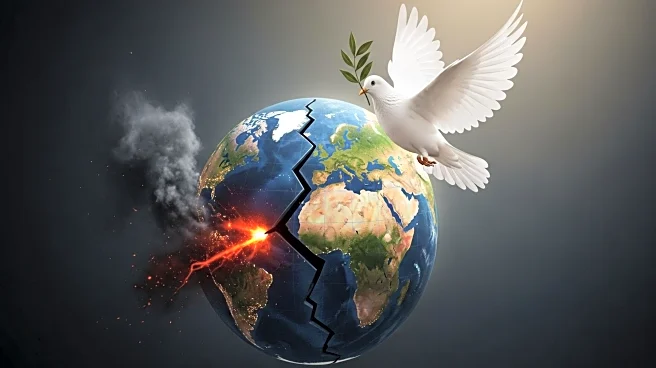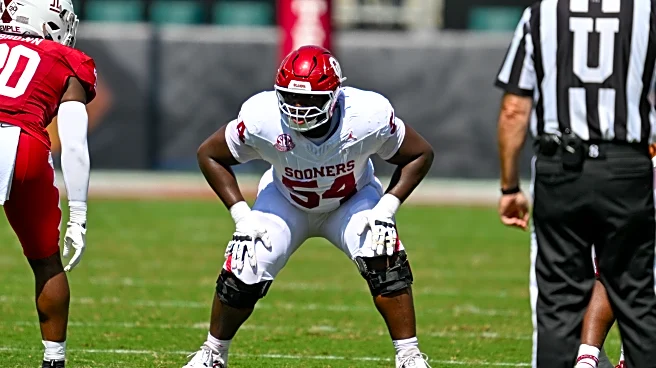What's Happening?
Palestinians in Gaza are advocating for Hamas to accept a cease-fire plan proposed by the United States, as the region continues to suffer from prolonged conflict. The war has devastated communities and resulted in significant loss of life. President Trump introduced the cease-fire proposal during a meeting with Israeli Prime Minister Benjamin Netanyahu at the White House. The plan aims to halt the ongoing violence, which has caused immense civilian suffering. Despite the proposal, Hamas has yet to respond, but there is notable public support among Palestinians for the cease-fire, as many see it as a potential end to the hostilities.
Why It's Important?
The acceptance of the U.S. cease-fire plan by Hamas could significantly alter the dynamics of the conflict in Gaza, potentially leading to a reduction in violence and civilian casualties. The ongoing war has had severe humanitarian impacts, and a cease-fire could provide much-needed relief to the affected populations. Additionally, the proposal underscores the U.S.'s role in mediating international conflicts and its influence in Middle Eastern geopolitics. If successful, the cease-fire could pave the way for further diplomatic efforts and negotiations aimed at achieving long-term peace in the region.
What's Next?
Should Hamas accept the cease-fire, it could lead to a temporary cessation of hostilities, allowing for humanitarian aid to reach affected areas and for rebuilding efforts to commence. However, if Hamas rejects the proposal, President Trump has indicated that Israel may intensify its military operations against the group. The international community, including neighboring countries and global powers, will likely monitor the situation closely, as the outcome could have broader implications for regional stability and security.










